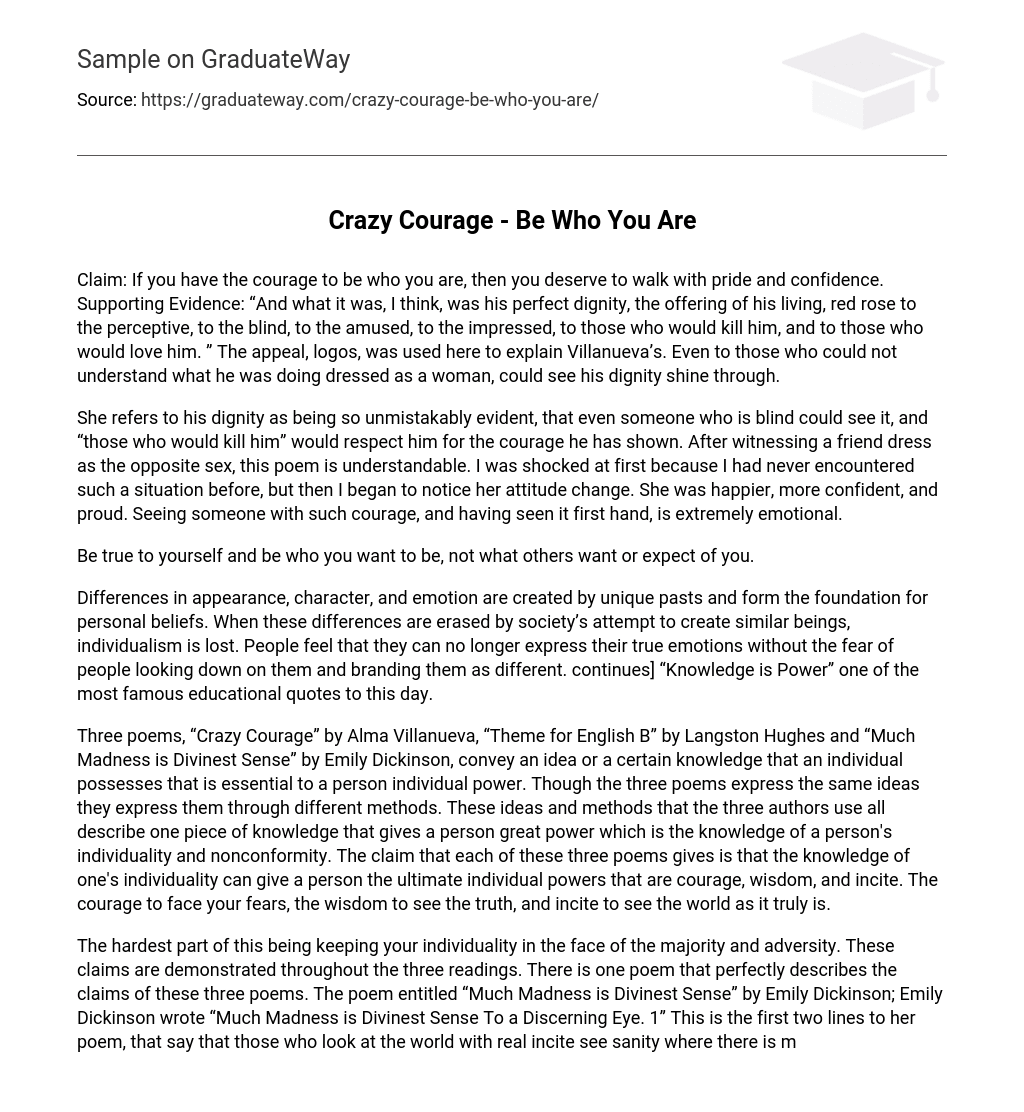Claim: If you have the courage to be who you are, then you deserve to walk with pride and confidence. Supporting Evidence: “And what it was, I think, was his perfect dignity, the offering of his living, red rose to the perceptive, to the blind, to the amused, to the impressed, to those who would kill him, and to those who would love him. ” The appeal, logos, was used here to explain Villanueva’s. Even to those who could not understand what he was doing dressed as a woman, could see his dignity shine through.
She refers to his dignity as being so unmistakably evident, that even someone who is blind could see it, and “those who would kill him” would respect him for the courage he has shown. After witnessing a friend dress as the opposite sex, this poem is understandable. I was shocked at first because I had never encountered such a situation before, but then I began to notice her attitude change. She was happier, more confident, and proud. Seeing someone with such courage, and having seen it first hand, is extremely emotional.
Be true to yourself and be who you want to be, not what others want or expect of you.
Differences in appearance, character, and emotion are created by unique pasts and form the foundation for personal beliefs. When these differences are erased by society’s attempt to create similar beings, individualism is lost. People feel that they can no longer express their true emotions without the fear of people looking down on them and branding them as different. continues] “Knowledge is Power” one of the most famous educational quotes to this day.
Three poems, “Crazy Courage” by Alma Villanueva, “Theme for English B” by Langston Hughes and “Much Madness is Divinest Sense” by Emily Dickinson, convey an idea or a certain knowledge that an individual possesses that is essential to a person individual power. Though the three poems express the same ideas they express them through different methods. These ideas and methods that the three authors use all describe one piece of knowledge that gives a person great power which is the knowledge of a person’s individuality and nonconformity. The claim that each of these three poems gives is that the knowledge of one’s individuality can give a person the ultimate individual powers that are courage, wisdom, and incite. The courage to face your fears, the wisdom to see the truth, and incite to see the world as it truly is.
The hardest part of this being keeping your individuality in the face of the majority and adversity. These claims are demonstrated throughout the three readings. There is one poem that perfectly describes the claims of these three poems. The poem entitled “Much Madness is Divinest Sense” by Emily Dickinson; Emily Dickinson wrote “Much Madness is Divinest Sense To a Discerning Eye. 1” This is the first two lines to her poem, that say that those who look at the world with real incite see sanity where there is madness.
As the poem goes on it tells that the majority only sees madness and condemns those who don’t agree with the majority are frowned upon. In this poem, if you have the courage to maintain your individuality and not conform to the majority no matter how you are viewed or treated by the majority. You can see the world with clarity and see the madness for what it really is, which is perfect sanity. Although the three poems teach the same lessons of individuality, nonconformity, and what can be gained from it.





